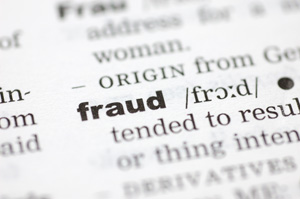
It is surprising to hear the voices of 91 economists raised in unison supporting retention of the HST. Particularly since they base their argument on the assumption that tax savings in the marketing chain will be used for investment and/or passed on to consumers. Yes, in a perfect market, firms would compete vigorously to reduce costs and gain market share. But we're not in la-la land Toto...
What concerns this economist (call me number 92) is the elephant in the room. The big problem no one is talking about is that the HST input tax credit system is so full of holes, you could run a Stanley Cup riot through it. There is no documentation required when a person files his/her HST return. You simply report sales for the filing period (could be a year, a quarter, a month), HST paid and HST collected. If you paid more than you collected, you receive a cheque. If not, you send a cheque.
Most British Columbians are honest and wouldn't think of cheating on their taxes. But with no proper documentation, the HST reporting system is open to abuse. And abuse, by all accounts, is both widespread and costly.
'Input tax credits' are slippery things
In its 2003 inquiry into GST fraud, the House of Commons Public Accounts Committee's Seventeenth Report confirms this: "The illegal activity in question is mostly in the form of individuals making false claims for GST rebates, otherwise known as input tax credits." Because GST registrants are not required to produce supporting documentation when filing for GST rebates, it is difficult for the federal tax authorities to identify fraudulent GST rebate claims; and for each case of fraud identified, there may be considerably more undetected illegal activity."
In its response, the federal government reported 415 convictions for GST fraud from 1993-2001, totaling $32.5 million. But it gets worse. When then-federal revenue minister Elinor Caplan appeared before the Commons Committee, she pegged actual losses due to fraud at a whopping $154 million since the tax was introduced in 1991.
And, not surprisingly, in a tight economy, things seem to get worse. Googling "GST" and "scam" returns over 180,000 Canadian web pages. Many of course are duplicates or unrelated to actual fraud. But many document cases of abuse. In one 2005 scam, Revenue Canada paid out $50 million in GST rebates; auditors were able to trace and recover only $20 million through bank accounts.
Beware leakage due to scams
By piggybacking British Columbia's PST onto the GST to create the HST, we subject our provincial tax revenues to similar risk. Money absconded from the pool by fraud will have to be repaid by B.C. consumers (higher taxes) and/or B.C. communities (lower services). And when we hurt, the economy hurts. A downward spiral.
The cost to society of leakage due to fraud and scams is the elephant in the room -- an unbounded risk not considered in the arguments of those who urge us to vote NO. Nor included in their benefit-cost analysis. ![]()
Read more: Politics














Tyee Commenting Guidelines
Comments that violate guidelines risk being deleted, and violations may result in a temporary or permanent user ban. Maintain the spirit of good conversation to stay in the discussion.
*Please note The Tyee is not a forum for spreading misinformation about COVID-19, denying its existence or minimizing its risk to public health.
Do:
Do not: